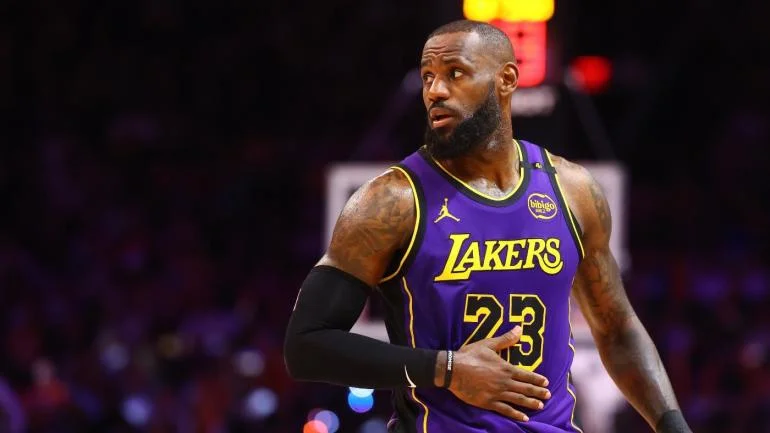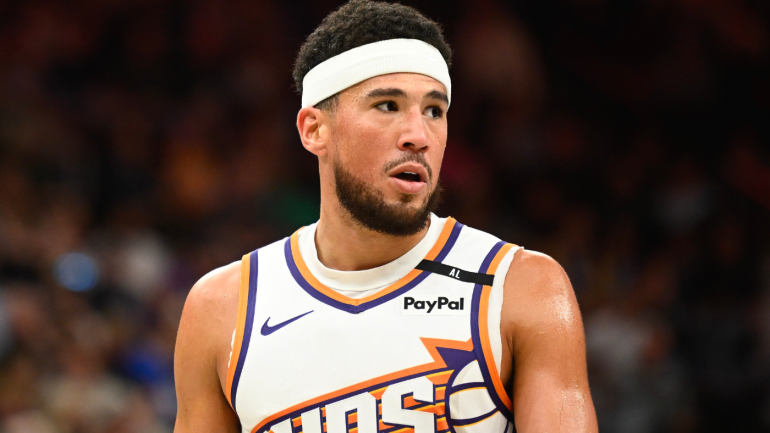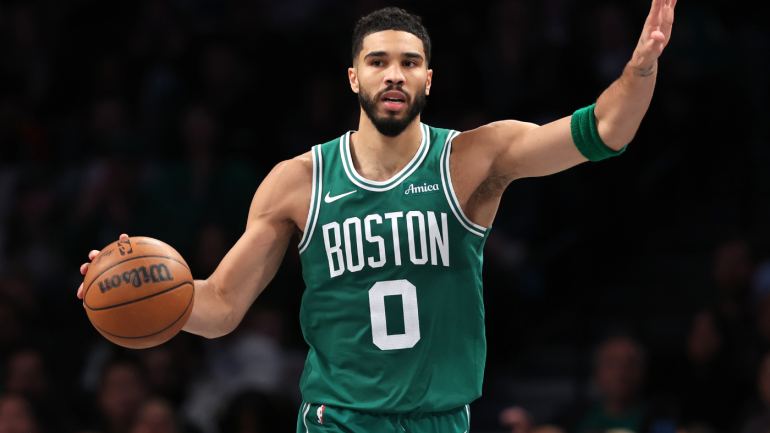The playoffs are here and we should all be soaking up every minute and every blowout of that. However, the majority of the league has already entered their offseason, so we’re going to show them some love as well. We’ve already studied the 14 lottery teams and the 8 teams that got sent packing in R1.
We’re almost winding down our series now with only 6 teams left. Apparently, James Harden is a MASSIVE fan of this “offseason blueprint” series, because he checked out of the playoffs early so he could rush home and read about his team. Let’s give him what he wants:
HOUSTON ROCKETS
What’s the next step for James Harden and the Rockets?
Hopefully, the sting and the hurt from the Game 6 loss will wear off, and Rockets fans will look back at 2016-17 as a great year. After all, the team jolted up from 41-41 (with a + 0.2 point differential) all the way up to 55-27 (with a +5.8 differential.)
When a team improves by that much, that quickly, the media searches for easy “narratives” to explain it. Hiring possible Coach of the Year Mike D’Antoni is a narrative that does make sense.
However, I don’t agree with the second most common claim: that the Rockets were so much better because James Harden was a completely different player this year. Harden may have looked a little sluggish and doughy at times two years ago, but he was still a superstar. The guy averaged 29.0 points, 7.5 assists and had a true shooting percentage of 59.8% — those are MVP caliber numbers. He had an uptick this year, but a lot of that was due to heavier usage: extra assists/extra turnovers. In terms of efficiency, there wasn’t a huge difference, as illustrated by his 61.3 TS% this year. The fact that he’ll likely finish 2nd in MVP voting this year and couldn’t even crack the All-NBA third team the year before is silly. That’s narrative street.
The narrative that I believe didn’t get enough attention was Daryl Morey’s bold gamble on two Pelicans – Eric Gordon and Ryan Anderson. They were obviously great shooters, but their health was always a question mark. Gordon only played 44 games last season, and Ryan Anderson had only played 70 games in 1 of his 8 seasons in the NBA. Make that 2 of 9. The fact that Gordon and Anderson combined for 147 games – and averaged a combined 6.1 threes a game – made Harden even more lethal, and the Rockets’ offense unstoppable (unless you’re Gregg Popovich.)
(1) Trust the system
The James Harden / Houston meltdown in Game 6 against San Antonio (minus Kawhi) was one of the most inexplicable losses that I can remember. It may lead to an entire offseason of questioning Harden and D’Antoni and the entire operation. The only excuse I can summon up is that Harden must be nursing an injury, no matter what the team says.
I have to believe that, because I steadfastly refuse to buy into the “D’Antoni’s system doesn’t work in the playoffs!” hype. The small ball, ‘7 seconds or less’ philosophy has been proven to be true. It’s not a philosophical difference – it’s simple math. It’s not 50% harder to hit a three than it is a long jumper, yet they award you 50% more points for it. It’s a systemic flaw in the game — and smart teams take advantage.
The Rockets’ embraced that, and exploited that, and jacked up their 3-point attempts from 30.9 per game last year to 40.3 this year, making nearly 4 more threes a game as a team. Not only do they have the right philosophy – they have the right personnel to pull it off. Eric Gordon and Ryan Anderson are nice role players, and Patrick Beverly has developed into the ideal “3-and-D” point guard to play next to Harden.
Obviously, there’s still work to be done. This team needs to improve its defense and its depth — but the foundation is there. The philosophy makes sense. Golden State, for one, has shown that you CAN have a quick-hitting three-point-centric offense AND a great defense at the same time, so the Rockets need to keep tinkering until they get there.
(2) Protect yourself down low
The Rockets shouldn’t feel the need to rock the boat because they’re set for steady sailing right now. In fact, 8 of their top 9 scorers are already under contract for next season.
The one exception is Nene Hilario, who played surprisingly well at age 34. He’s a tough interior player whose IQ and positioning helped him become a positive on the defensive end (where ESPN real +/- graded him as a +3.35).
Keeping Nene is an achievable and practical goal. Young Clint Capela looked strong (with 12.6 points and 8.1 rebounds in only 23.9 minutes) but he’s not a full-time player right now. In fact, I’m surprised opponents didn’t try sing more hack-a-‘pela; he’s improved to a 53% free throw shooter, but that’s still a safer bet than guarding the Rockets’ shooters.
The timing for these two works well. Capela is a restricted free agent next summer and may merit a sizeable extension. In the meantime, the Rockets have the cap space to grant Nene a 1-year contract – even if it’s a bloated one. I’d try to re-sign him to a 1 year, $10 million deal, which would keep space available next summer for Capela’s extension. My hope is that Nene doesn’t view himself having more than a year or two of gas left in the tank and will be happy to stay put.
If Nene does get a wandering eye, the team could look to add another veteran to hold down some minutes down low. Montrezl Harrell plays like his hair’s on fire, but you’d at least like to have a safety net for a young pup like that. A vet like Amir Johnson can provide some more insurance and steady defense. Young Cristiano Felicio (CHI) may have more upside. I’d even be curious to see if journeyman Kris Humphries may flourish on a more uptempo team – always a rebounder, he’s been trying to extend his range.
(3) Protect yourself from injury (and age)
The biggest concern that I have with this Rockets’ squad is their depth – both in terms of their rotation, and the effect that a single injury may have. Ryan Anderson and Eric Gordon stayed healthy this year, but they can’t count on that lasting every season.
Their backcourt is reasonably well insured with Lou Williams around – Sweet Lou can slide in at either PG or SG and provide an extra spark as a scorer if Harden or Eric Gordon ever misses time.
The depth at the forward positions scares me more. Right now, the Rockets aren’t particularly equipped to handle a Ryan Anderson injury. Sam Dekker and even Kyle Wiltjer should have the skill set to be stretch fours, but they’re inconsistent. Adding another scoring big off the bench isn’t a bad idea. I didn’t recommend the Milwaukee Bucks bring Michael Beasley back, but he does make some sense here as a depth play if the price is right.
The team also needs to worry about Trevor Ariza, who is 31 and in the final year of his contract. Either Ariza starts slowing down and you’ll need to replace him – or he continues to play well and you’ll need to give him a massive contract next summer to keep him. Either way, the Rockets should be planning ahead and trying to develop a “3-and-D” small forward who may be ready to step into that role in the future.
Given their salary cap situation, the Rockets won’t be able to afford big free agents. Knicks’ SF Justin Holiday would be ideal, but he could get pricey. Celtic SF Gerald Green (and even their project James Young) may fit the Houston system as well. If the Rockets can’t land any new talent, they’re going to have to develop in-house.
Current backup Troy Williams could be intriguing in that regard; he’s a 6’7″ athletic wing who’s still only 22 years old. Perhaps he can develop into your next Trevor Ariza (or even a James Ennis type player). The Rockets don’t have a first-round pick, but they do have two in the second round. The one player currently slotted there (according to nbadraft.net) that could fill this purpose is Notre Dame SF V.J. Beachum. A wiry 6’8″ forward, Beachum is best known as a shooter. His 36.1% from beyond the arc was actually low for him this year; he hit 44.4% the year before. If he adds some weight, he could be a steal in round 2.
All these moves may not seem bold enough (or over-reactionary enough) given the smashing in Game 6, but that’s by design. As mentioned, the Rockets have the right coach, the right GM, and the right idea — surround your superstar with three shooters and one big man down low and let him get to work and do damage. Hopefully, he actually shows up next time.




